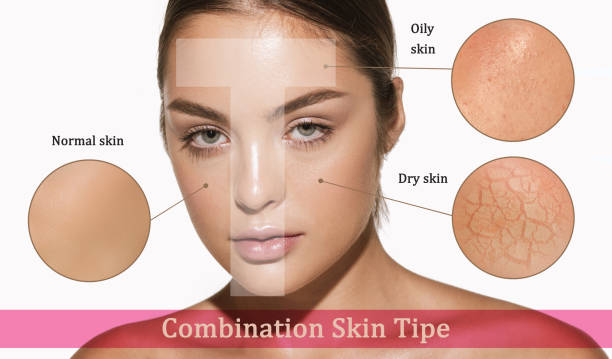The Top 20 Sensitive Skin FAQs: From defining sensitive skin to managing reactions, understanding triggers, and seeking appropriate care, these commonly asked questions provide comprehensive insights into sensitive skin concerns. The Top 20 Sensitive Skin FAQs are:
- What defines sensitive skin?
Sensitive skin isn’t just about feeling discomfort with certain products; it can manifest in various ways. Dermatologists look for reactions like pustules, bumps, or increased sensitivity. Additionally, very dry skin can exacerbate sensitivity as it doesn’t adequately protect nerve endings. - How can I determine if I have sensitive skin?
While self-diagnosis is common, consulting a dermatologist offers a more accurate assessment. They can examine your skin and consider various factors before determining if sensitivity is the root cause. - What triggers sensitive skin reactions?
Sensitive skin reactions can be triggered by a multitude of factors, including skin disorders like eczema or rosacea, as well as environmental elements such as sun, wind, heat, or cold. Understanding these triggers can help in managing sensitivity. - Are there specific medical tests for sensitive skin?
Patch testing can identify potential allergens contributing to sensitivity. However, diagnosing sensitive skin often involves ruling out other causes due to the complexity of factors involved. - Should men be concerned about sensitive skin?
Men should prioritize skin health, as maintaining healthy skin is essential for everyone, regardless of gender. - How can I care for my sensitive skin, especially on my face?
Gentle cleansing with mild, fragrance-free products is crucial for sensitive facial skin. Additionally, using moisturizers regularly can help protect and soothe sensitive skin. - What should I look for in skincare products to minimize irritation?
Choosing products with minimal ingredients and no added fragrance can reduce the risk of irritation for sensitive skin. Avoiding certain active ingredients like retinoids and harsh chemicals is also advisable. - Which cosmetics are less likely to irritate sensitive skin?
Powder-based cosmetics with minimal preservatives are generally safer for sensitive skin. Opting for silicone-based foundations and avoiding waterproof cosmetics can also minimize irritation. - How can I test a new skincare product for sensitivity?
It is recommended to conduct a patch test before applying the product fully. Apply a small amount behind your ear and leave it overnight to see if any irritation occurs before using it on a larger area. - How can I protect my sensitive skin in different seasons?
In both winter and summer, sunscreen with SPF 30 or higher is crucial for protecting sensitive skin. Additionally, moisturizing regularly and avoiding prolonged sun exposure are essential practices. - What should I look for in a sunscreen for sensitive skin?
Choosing sunscreens with physical blockers like zinc oxide or titanium dioxide can provide protection without causing allergic reactions, making them ideal for sensitive skin. - How do doctors diagnose and treat sensitive skin?
Dermatologists diagnose sensitive skin by assessing skin conditions and potential allergens. Treatment typically involves recommending gentle skincare products and avoiding known irritants. - Which clothing fabrics are best for sensitive skin?
Natural fabrics like cotton and silk are gentlest on sensitive skin, while synthetic fabrics like polyester may cause irritation. Loose-fitting clothing with minimal creases and folds is also recommended. - What diseases and conditions are associated with sensitive skin?
Skin disorders such as acne, psoriasis, eczema, and rosacea commonly associates with sensitive skin and can worsen symptoms. - Does the FDA regulate cosmetics for safety?
While the FDA regulates cosmetics to some extent, there isn’t the same level of oversight as with medications and medical devices. This underscores the importance of being informed about product ingredients and potential risks. - Are hypoallergenic skincare products safer?
Skincare products labeled as hypoallergenic might not offer extra safety for sensitive skin. Unlike other product labels regulated by federal standards, there are no strict guidelines for using the term “hypoallergenic” in skincare. This means each company can define it differently, which might not always align with what consumers expect. - How can I determine if a product will irritate my skin?
The National Institutes of Health (NIH) and the National Library of Medicine (NLM) Specialized Information Services group offer a valuable resource called the Household Products Database, available online. This database allows users to search for products by brand name and access detailed information about their ingredients. By using this database, individuals can determine whether any components in these products have the potential to irritate their skin, helping them make informed choices about the products they use in their households. - Can diet affect sensitive skin?
A healthy diet rich in nutrients can support overall skin health, but specific dietary changes may not directly impact sensitive skin conditions. - Can children outgrow conditions related to sensitive skin?
Conditions like eczema may improve or resolve with age for some children, while others may continue to experience symptoms into adulthood. - Is sensitive skin hereditary?
Several skin conditions associated with sensitive skin, such as acne, eczema, psoriasis, and rosacea, are either known or suspected to have genetic links. However, it’s essential to note that skin irritation resulting from reactions to skincare, cosmetics, or household products is not hereditary.

